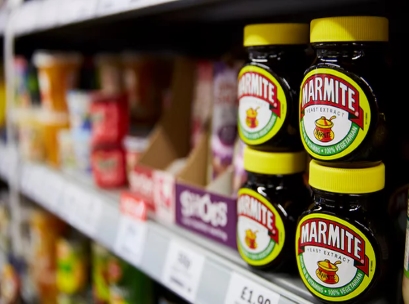 When companies as large as Tesco and Unilever clash, there are bound to be some sparks.
When companies as large as Tesco and Unilever clash, there are bound to be some sparks.
Unilever, the world’s third-largest consumer goods company and producer of scores of British products, has pulled deliveries to Tesco, the UK’s largest supermarket chain, after Tesco refused to accept Unilever’s 10 per cent product price increases.
The result has been that shelves have been emptied of loved brands, from cleaning products to Marmite and Pot Noodles.
Certainly price increases aren’t unexpected, given the pound has fallen almost 20 per cent against the Euro since the vote to leave the European Union in June. Suppliers can blame increased costs on the falling value of sterling, costs that must be passed on to the consumer. However, in my view this is more an arm wrestle between Britain’s largest grocery retailer and it’s largest supplier. While the outcome is unknown, it provides an interesting real-life case study of the industry.
Tesco was the unchallenged “champion of the consumer”, an image carefully cultivated by chief executive Sir Terry Leahy which helped the company grow from 16 per cent share of the grocery retail trade to more than 30 per cent over ten years. But the economic crash had a devastating effect on Tesco and the grocery retail trade, as consumers switched to discount retailers such as Lidl and Aldi.
Alongside this trend, Tesco lost its way, as consumers turned against its dominance of the high street, while shopping patterns changed from the weekly “big shop” to smaller, more frequent shopping trips. Finally, an accounting scandal revealed how the bonus culture had corrupted its business practices and damaged relationships with both suppliers and consumers.
Unfortunately, the arrival of new chief executive Dave Lewis, who moved to Tesco from Unilever, came at the same time as Tesco’s largest-ever profit warning, £6.4 billion and as investor Warren Buffet made damning comments on regretting investing in Tesco. Lewis has since focused on customer service and trying to get back in touch with the Tesco shopper.
Two years on, Tesco’s new challenge comes from its number one supplier – and there are risks and rewards for both businesses.
Unilever can claim it is protecting the quality and image of its products by nudging prices up – which will of course also help the company’s bottom line. But in some cases consumers have deserted these household brands, switching to “me-too” unbranded imitators from the likes of Aldi, which even uses similar-looking product packaging to reinforce the price comparison.
The risk is that Tesco and other supermarkets instead start to emphasise their own-brand product ranges, which have been repositioned from cheap and cheerful to low price but high quality. While, in some cases, the Unilever brand is difficult to replace (Ben and Jerry’s ice cream, Pot Noodle, or indeed Marmite for example) – for many others, I’m not so sure that anyone would notice if it was missing from the supermarket shelf.
For Tesco, the big risk is that consumers shop elsewhere. This is a gamble that I’m sure it will have considered: its online shop prompts buyers to choose from a range of alternatives alongside the “out-of-stock” message. The second risk is that this prompts other heavyweight suppliers such as Proctor and Gamble, GSK or PZ Cussons to increase prices, too, squeezing already thin margins even further.
If Tesco can ride the storm the benefit is enormous: the firm will be able to exert more clout as a retailer and begin to reclaim the “champion of the consumer” title that it lost.
It doesn’t seem right to blame Brexit for forcing prices up in this case as it’s unlikely that any supply chain costs would have been sufficient to warrant a 10 per cent price hike in the few months since the referendum vote. As Unilever’s chief executive Paul Polman has himself pointed out, a successful business focuses on the long-term, rather than short-term quarterly profits. Watch this space.
![]() Joseph McGrath, Principal Lecturer in Marketing, Liverpool John Moores University. This article was originally published on The Conversation. Read the original article.
Joseph McGrath, Principal Lecturer in Marketing, Liverpool John Moores University. This article was originally published on The Conversation. Read the original article.
















